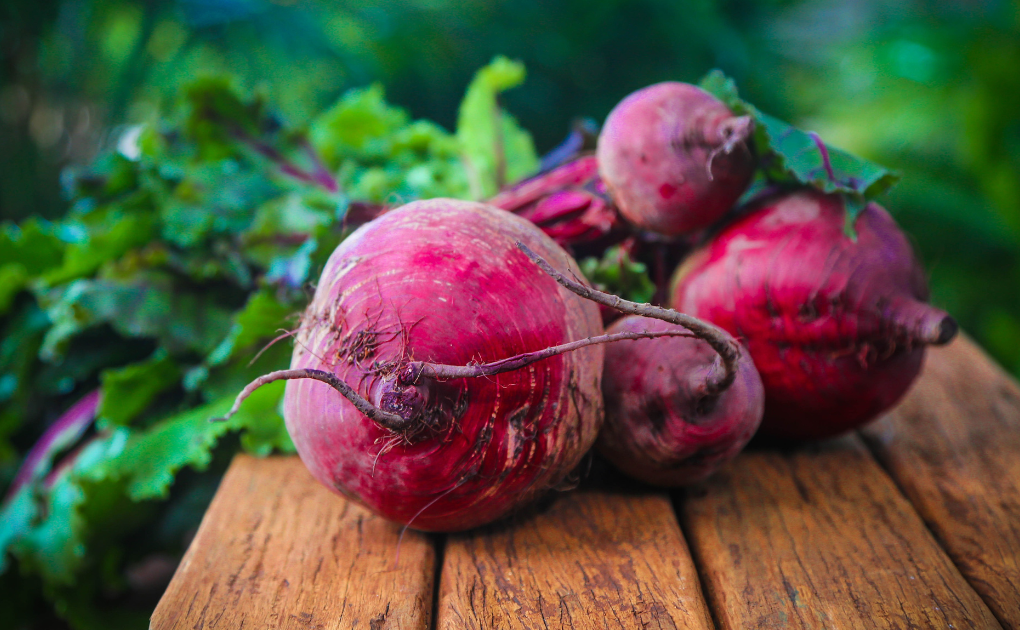This article will take 3 minute to read.
If you’ve ever seen a toddler eat beetroot, you know that they’re not the most appetizing food. The earthy-red root also isn’t the first thing people will think of when they hear “healthy food.”
But beets are actually chock full of nutrients that can serve as a healthy addition to any diet. They’re high in fiber and low in calories, so they help you feel fuller longer and curb cravings; plus, they contain antioxidants that fight free radicals and boost your immune system.

Improves digestion
Beetroot contains betaine, which is a natural digestive aid. Betaine helps to break down fats and proteins so that you can digest your food more efficiently. It also protects the stomach lining and may even prevent ulcers from forming in the first place.
If you’re interested in optimizing your digestion further, consider taking betaine as a supplement (it’s often combined with other nutrients).
Helps beat stress
- Beetroot contains a lot of betalains, which are effective antioxidants.
- It’s believed that this antioxidant can help reduce stress and improve your health.
Stress is a significant cause of many health problems, so it’s essential to find ways to manage it if you want to live a long and healthy life!
It helps you meet your iron needs
Beetroot is a good source of iron. Iron is a mineral that helps build red blood cells, which transport oxygen throughout the body. Without enough iron, you may experience fatigue and weakness, as well as shortness of breath and palpitations.
Iron deficiency is common in women because their bodies lose more of this mineral during menstruation; in fact, up to 30 percent of women between the ages of 20 and 50 years old are at risk for anemia due to low levels of hemoglobin (the protein that makes up red blood cells) or hematocrit (the percentage of red blood cells). This can occur even if you’re consuming enough calories from foods such as meat or fish every day—and it doesn’t just apply to vegetarians! It would be best if you had ample amounts not only while you’re pregnant but also after childbirth so you can recover properly.
Good for pregnant women
Beets are very beneficial for pregnant women, who need to be especially careful about their health. Beets can help prevent anemia, constipation, nausea, and swelling during pregnancy. They can also help reduce the risk of leg cramps, hemorrhoids, and varicose veins, as well as preterm labor and preeclampsia (a condition associated with high blood pressure).
Can it help boost exercise performance?
The beetroots are a good source of nitrates, which can help the body produce more blood vessels. If you’re interested in learning more about this, check out this study by researchers at the University of Exeter and Plymouth University: “Acute dietary nitrate supplementation improves cycling time trial performance.”
To put it simply, this means that beetroot juice is an excellent way to help deliver oxygenated blood to your muscles—and if you have more oxygenated blood in your muscles, you can exercise for longer and more complicated.
Beetroot is good for you.
You might be thinking, “How good can beetroot be for me? It’s just a vegetable.” But you’d be surprised! Beetroot is high in fiber and vitamin C, both of which are essential to your body’s functioning. It also contains iron, one of the most important nutrients for your blood. Beets can help boost your performance and meet your iron needs—all while tasting great!

Conclusion
So there you have it—the benefits of beets and their juice. If you’re ready to dive headfirst into a beetroot-heavy diet, there are plenty of ways to do so. Try drinking fresh beet juice with your meals or adding chopped raw beets into salads and sandwiches. You can also roast them with olive oil until soft before eating them plain or mixing them in other vegetables like carrots or tomatoes.
